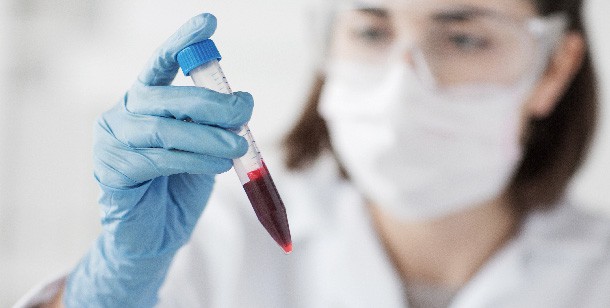To lead a healthy lifestyle, regular routine visits with a primary care physician are important. While you’re in the office for that checkup, a blood test may be performed. Blood tests are a common method to check for various diseases and conditions; these tests are capable of checking your complete blood count (CBC), blood clots, and much more. But how often is a blood test needed?
The answer varies depending on factors like your overall health and family history of health. Blood tests are not always brought up in an annual physical, so we want to provide a guide on everything you need to know about common blood tests.

What are Blood Tests Used For?
Routine blood work tests measure or examine cells, chemicals, proteins, and other substances in the blood; these tests are typically involved in a regular check up with a primary care doctor. This type of test does the following:
- Diagnoses Conditions
- Monitors Chronic Diseases (e.g., Diabetes or High Cholesterol)
- Checks on Organ Function
- Monitor Treatment Success
- Diagnoses Bleeding or Clotting Disorders
- Determines if Immune System is Fighting Infection
Routine blood tests are a good barometer for overall health, and are a great way for you and your doctor to track how your body changes over time. The test results will help both of you make well-informed decisions about your health.

Types of Blood Tests
When it comes to answering how often is a blood test needed, there isn’t just one way to test your blood; there are actually a variety of methods to check on different aspects of your overall health. Common blood tests include the following:
Complete Blood Count (CBC):
A CBC checks parts of your blood—red blood cells, white blood cells, platelets, and hemoglobin. This test is important as it helps find out if you have any nutritional deficiencies, anemia, blood clots, infectiona, or immunity disorders. Your primary care doctor will usually include a CBC into your annual physical exam.
Basic Metabolic Panel (BMP):
A BMP will measure the chemicals in your blood—such as glucose, calcium, electrolytes. Test results will reveal if you have kidney disease, diabetes, or hormone imbalances. Your doctor may ask you to fast for at least eight hours before having blood drawn.
Cardiac Enzyme Tests:
These tests are typically used for patients who are having or recently experienced a heart attack. For more context, enzymes are what controls chemical reactions throughout your body, and the levels of cardiac enzymes can become high after a heart attack. These tests are performed like many other routine blood tests; getting blood drawn takes only a few minutes.
Lipid Panel:
A Lipid Panel is another test for checking heart disease by detecting your levels of lipids, the fat stored in the body and used for energy. Cholesterol is the main subject. “Good” cholesterol (HDL) helps the liver break down harmful substances, but “bad” cholesterol (LDL) causes the arteries to develop plaque, which usually leads to heart disease. Your primary care physician may ask you to fast for eight hours before you have blood drawn for this test.
Coagulation Tests:
These tests measure your blood’s ability to clot and determine if you have a disorder that could potentially cause too much bleeding or clotting. Most commonly, this blood test will require you to have blood drawn via a needle in your arm by your doctors. Afterwards, a lab tests the sample to see if you have any complications. These tests are common if you take a medication that potentially affects clotting or if you are about to have surgery.
Sexually Transmitted Infection:
STI tests involve a blood test as well as a urine sample or swab of the infected area. Tests will diagnose the presence of chlamydia, gonorrhea, herpes, HIV, and syphilis. An important note is that test results are not always correct immediately after contracting an infection; for example, HIV takes about a month before the virus can be picked up by a blood test.

Ways to Get a Blood Test
There are a few different methods of getting your blood drawn for routine blood tests. The most common is a venipuncture, when a doctor injects a needle into a vein of your arm to withdraw blood.
There are also finger prick tests, which involve pricking only your fingertip; these are used mostly for at-home test kits and rapid tests, which provide fast test results and require little special equipment.
A heel stick is used by physicians to test for diseases and conditions on newborns. The baby’s heel will receive a small poke to get a few drops of blood to analyze and get test results.
Arterial blood tests measure oxygen levels in your blood. Your arteries have a higher level of oxygen than your veins, so this test requires getting blood from an artery. You may feel a sharp pain during this test.
How Often Should You Get a Blood Test?
A CBC and BMP should be done annually as part of your regular check up; otherwise, blood tests will happen as often as they are recommended by your primary care physician. How often a blood test is needed will depend on your age, lifestyle, and family history of health conditions.
Blood Tests at Village Emergency Centers
If you have concerns about your health, you can go to your local emergency care center and ask them to conduct a blood test for you. They will also go over the results with you to help you better understand your condition and what decisions you need to make to live a long and healthy life.
